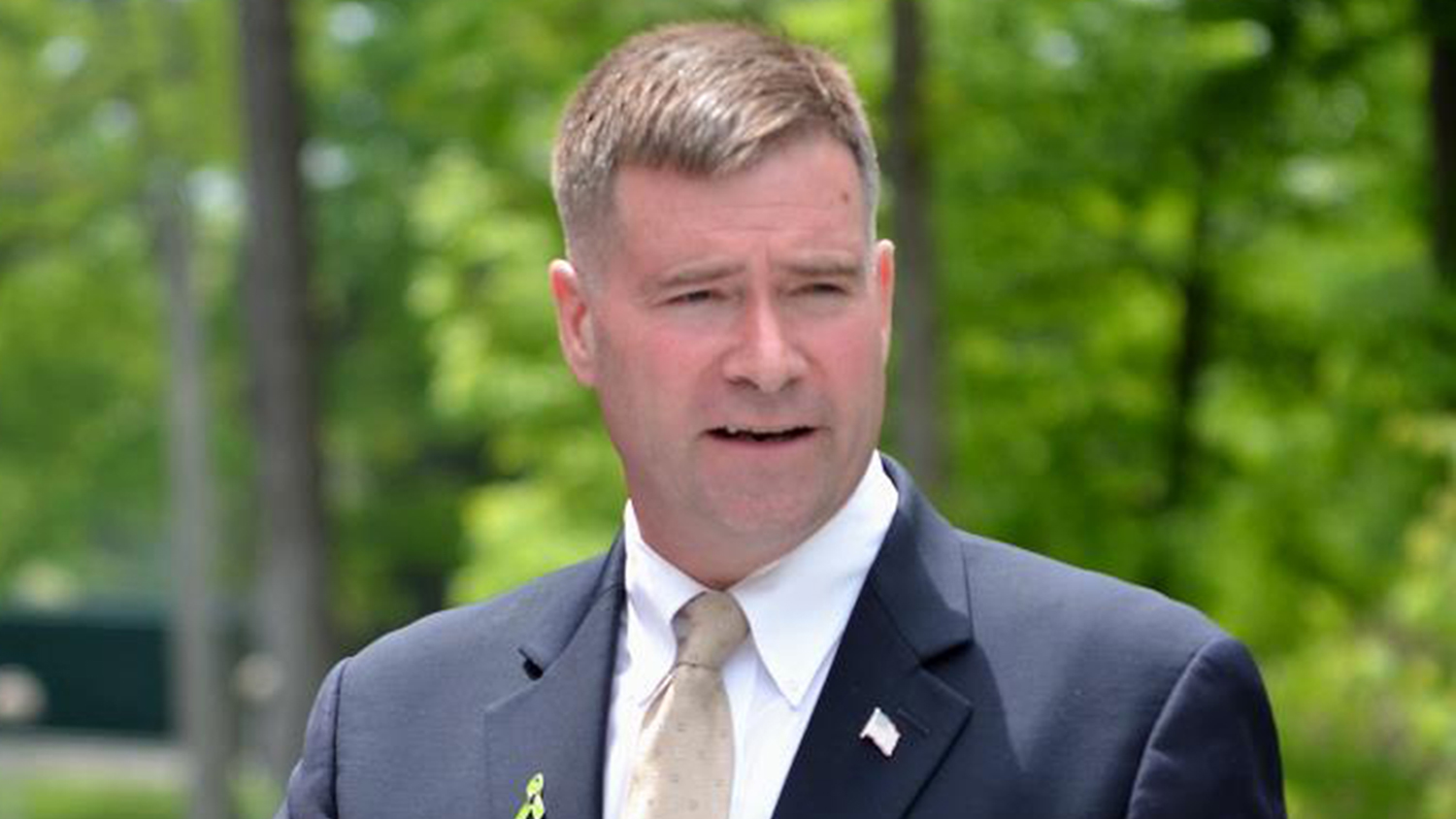Second-tier Republican presidential candidate Bobby Jindal said in 2013 that Republicans “must stop being the stupid party.” But neither he nor his 14 primary opponents are making the party any smarter with their reluctance to acknowledge the serious problem of climate change.
Now some other Republicans are trying to drag the GOP into the post-Enlightenment age. Last week, 11 GOP House members introduced a resolution announcing their acceptance of climate science and their support for action to reduce greenhouse gas emissions.
The resolution runs through a list of reasons why conservatives (and everyone else) should worry about climate change and its economic, health, and national security implications. It cites, for example, a Defense Department review last year that warned that the effects of climate change are “threat multipliers.” It then calls on the House to commit to:
working constructively, using our tradition of American ingenuity, innovation, and exceptionalism, to create and support economically viable, and broadly supported private and public solutions to study and address the causes and effects of measured changes to our global and regional climates, including mitigation efforts and efforts to balance human activities that have been found to have an impact.
The text is not specific and not bold. And it’s merely a non-binding statement of principle, not actual legislation. And with the GOP’s large majority in Congress, it won’t pass.
But the mere existence of the resolution is a sign of progress. Here are four reasons why:
- It signifies a trend toward climate realism in the GOP, albeit a limited trend so far. Eleven House Republicans who embrace the need for climate action is an improvement over two. Last year, just Reps. Chris Gibson of New York and Frank LoBiondo of New Jersey were clearly on record as supporting efforts to fight climate change; they were the only two Republicans who voted against House bills to repeal the EPA’s Clean Power Plan. This past June, when there was another vote to repeal the plan, they were joined by two more GOP colleagues: Carlos Curbelo of Florida and Robert Dold of Illinois. Now seven additional Republicans have joined them in publicly voicing their concern about climate change by cosponsoring this new resolution. That’s still a tiny fraction of the whole 247-member House Republican caucus, but the group has gone from the size of a doubles tennis pair to the size of a football team.
- It suggests that Pope Francis’ call for climate action could be making a difference. More than half of the resolution cosponsors are Catholic, which might indicate that the pope’s proclamations on the issue are moving Catholic Republicans. If nothing else, the pope is giving some political cover to Catholic Republicans in heavily Catholic districts. White Catholics are a crucial swing voting bloc, so any sign of growing Catholic concern for climate change is a cause for celebration. Mea culpa: This means I was at least partially wrong to assert, as I did in June, that the pope’s climate encyclical would have no effect on U.S. politics. Among the most hardened right-wing Catholic politicians, that has proven true. For example, Rep. Paul Gosar (R-Ariz.) said he will boycott Pope Francis’ address to Congress on Thursday because of the pope’s stance on climate change. But among more moderate Catholic Republicans, it appears that Francis has had some positive impact.
- It suggests that potential Republican climate leaders can be cultivated. Mea culpa part two: I was wrong when I argued last year that green groups such as the Environmental Defense Action Fund shouldn’t have endorsed Gibson because his Democratic opponent would have been more progressive on green issues. While that was true from a strict voting-record standpoint, Gibson, who is the lead sponsor of this resolution, is now looking far more valuable than another run-of-the-mill Democrat because he is leading within the GOP on climate change.
- It suggests some Republicans actually respect science and want to reclaim their party’s abandoned legacy of conservation. The resolution starts by stating, “it is a conservative principle to protect, conserve, and be good stewards of our environment, responsibly plan for all market factors, and base our policy decisions in science and quantifiable facts on the ground.” This certainly should be, and arguably is, a conservative principle. It has not of late been a Republican one. If any significant number of Republicans want to take this approach to policymaking, however, it will open up a number of environment and public health issues to bipartisan cooperation and progress.
Still, there are good reasons to keep your optimism in check. Here are four of those:
- The 11 GOP reps didn’t commit to or even propose any specific course of action to address climate change. Acknowledging a problem is one thing; embracing solutions is another. At the most recent Republican presidential debate, the two candidates who were asked about climate change, Marco Rubio and Chris Christie, didn’t deny that it was a problem, but they criticized Democrats’ proposed solutions and offered none of their own. If the 11 backers of this resolution take the same approach, that won’t represent much progress. In particular, many of these reps might still vote in the future to repeal the EPA’s Clean Power Plan, and if a Republican president takes office in 2017, that legislation might actually become law.
- The cosponsors of the resolution represent just a sliver of the Republican Party. They are all relative moderates from blue or purple states — three from New York, three from Pennsylvania, two from Florida, and one each from New Jersey, Washington state, and Illinois. The politics of climate change are in some ways more regional than partisan, with suburban and rural areas in the South, Appalachia, and Midwest being most opposed to climate action because they have the most coal, the most coal-heavy energy portfolios, and the most carbon-heavy economies. That dynamic is not changed at all by these 11 reps.
- Climate-denying Republicans still control the House of Representatives. The GOP leadership has yet to show any signs of moderation on climate change, and they control the agenda. The threat to House Speaker John Boehner’s leadership comes from conservatives within his party, not the cosponsors of this resolution, who largely hail from swing districts. “Keep in mind that these are moderates,” says Catrina Rorke, director of energy policy at the R Street Institute, a conservative think tank. “They face risk from the other side of the aisle more than in a primary and that’s not the calculation that the leadership faces.”
- Some Republicans could use this resolution as a form of greenwashing. Reps from moderate districts could try to appear reasonable by signing on and saying they want to address climate change, but they could still reject every actual effort to take action. That has been the Republican pattern in the past.
But EDF Action, which now looks smart to have endorsed Gibson last year, is confident that the cosponsors of this resolution are sincere about wanting to find solutions that Republicans can support. “We know it’s going to be some time before we get back to a serious conversation about climate policy in Congress,” says Tony Kreindler, a spokesperson for the group. “But this is one of the most important steps to getting there.”



